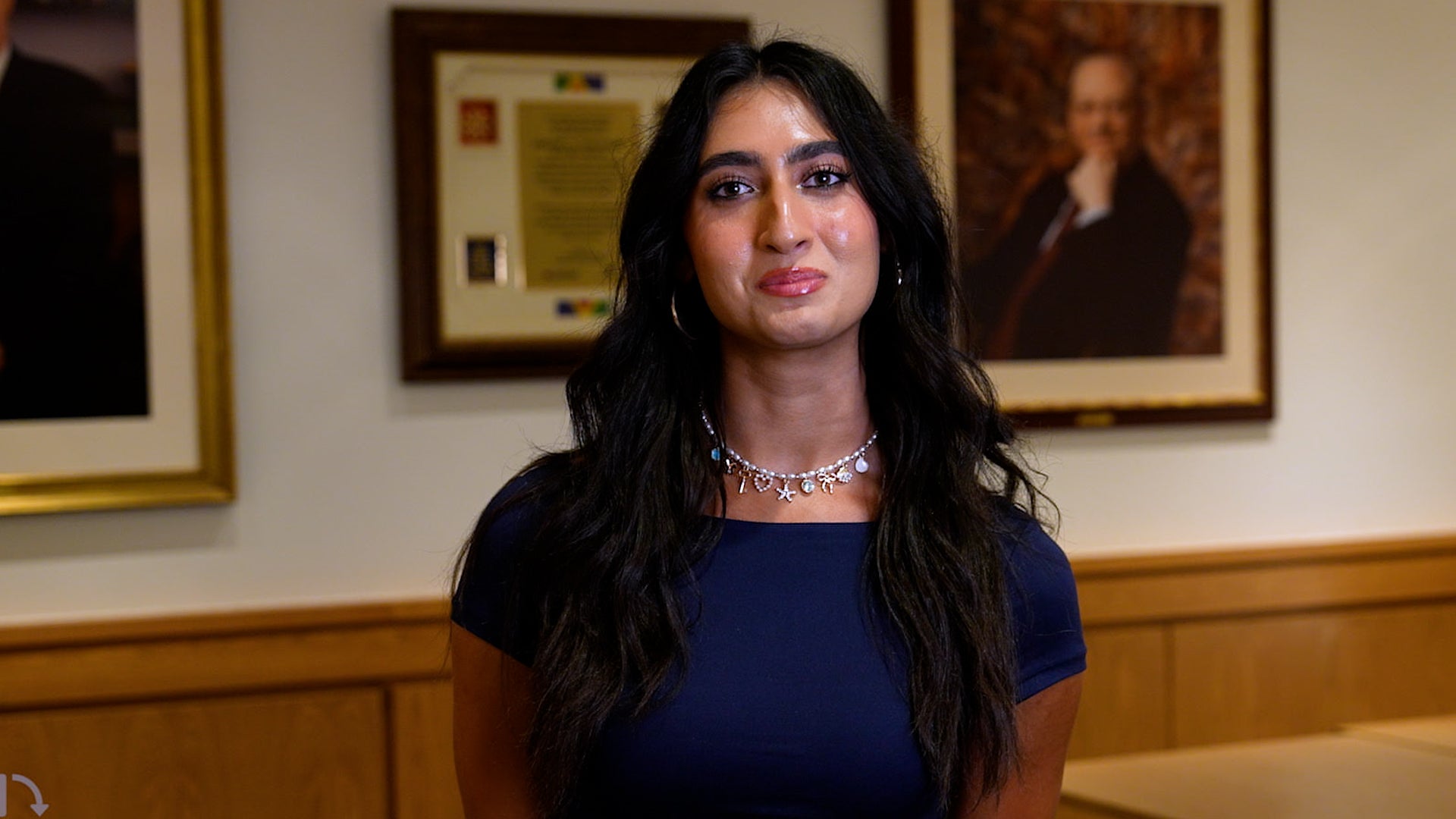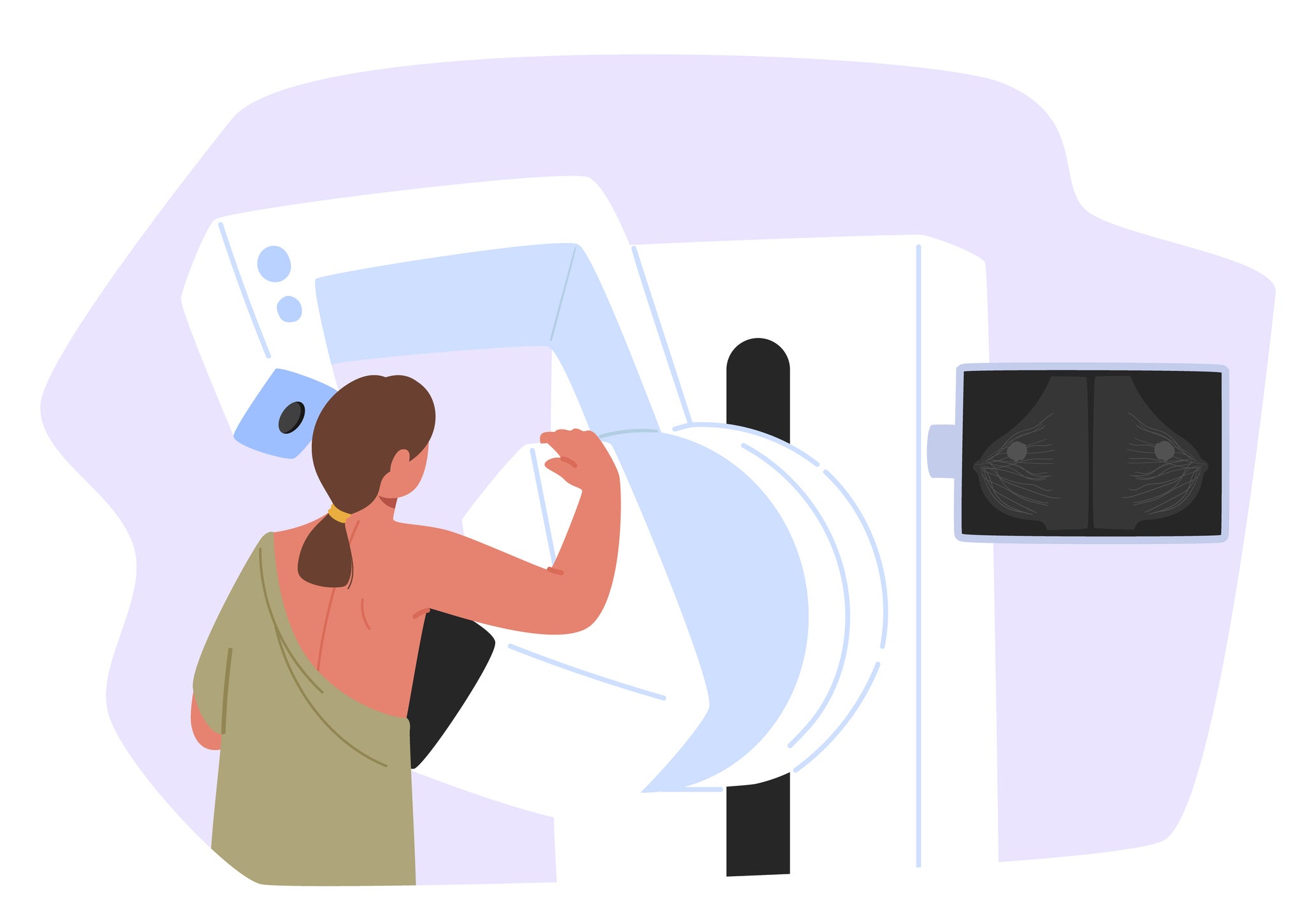For MPH Generalist student, health crisis leads to focus on improving the patient experience
Daphne Edgren was 18 years old and had just begun her first year at the School of the Art Institute of Chicago when she started having trouble breathing. She tried to push through it but wound up in the emergency room. Her oxygen levels were a dangerously low 50%. The next day, her medical team realized her lungs were shutting down. Edgren was diagnosed with acute respiratory distress syndrome (ARDS). She was put into a medically induced coma and placed on an ECMO device, a modern-day version of an iron lung that oxygenates blood and removes carbon dioxide. And she was put on the list for a lung transplant.
Edgren’s care team was baffled—she was a young, healthy non-smoker. They didn’t know what had caused her to develop ARDS, but now there was a very real chance she might not survive. So the clinicians caring for Edgren decided to try something new. Patients are typically kept in a coma or sedated while attached to the ECMO, but Edgren’s care team woke her up and asked her to walk. Edgren recalls that this was the moment that changed everything—both for her health and her career plans.
“My lungs began to heal, I came off the transplant list, and eventually made a full recovery,” says Edgren. A decade later, she is a student in Harvard T.H. Chan School of Public Health’s online, part-time MPH Generalist (MPH-GEN) program, expected to graduate in 2027. “Today, I am completely healthy. I can finish the Hustle Chicago Stair Climb [in which participants climb 94 flights of stairs] in under 25 minutes, spend an hour on the StairMaster at level 12 with a 30-pound weighted vest, and my scans show no lung scarring at all.”
Edgren’s recovery also gave her a newfound appreciation for the value of innovation in medicine and research, and it planted a seed that would eventually change the course of her career.
“It showed me how much progress can happen when medical professionals are willing to take thoughtful risks to give patients another chance,” Edgren says.
Empathy toward patients
Edgren completed her degree at the School of the Art Institute of Chicago, focusing on cinematography and oil painting. But she also nurtured her interest in medical research and public health. She did pre-med coursework at Columbia University and went on to work for several years in lab and clinical research roles. She now works at the Robert H. Lurie Comprehensive Cancer Center of Northwestern University as a clinical research project manager and medical writer, with a focus on sarcoma, neuro-oncology, pediatric neuro-oncology, and pediatric hematology oncology.
As a creative person and a survivor of a complex medical crisis, Edgren is particularly attuned to how patients experience life-threatening diseases and long-term clinical care. She’s empathetic toward patients undergoing treatment as part of clinical research, and notes that these patients often experience fear and disappointment when novel medical treatments fail to produce results.
“When you’re diagnosed with cancer and you’re having to [join a clinical trial] as a last resort, clearly things are not going very well,” Edgren says. “I feel for these patients very deeply.”
Developing leadership skills
She was drawn to Harvard Chan School’s MPH-GEN program because of its focus on leadership. She hopes to improve the experiences of patients who participate in oncology research by reshaping the way that scientists work with them. Edgren says that simple changes like calling people “patients” rather than “subjects” and ensuring comfortable spaces for them in hospitals makes a huge difference to people participating in research studies.
Edgren also wants to see more hospitals and clinics incorporate art into their built environments. As an artist, a researcher, and a former patient, she knows that what people see in health care settings can have an important impact on their perceptions of the care they receive.
“I want to … use art and beautiful things to inspire people as they’re walking into hospitals—to show more faith and [help them] feel like they’re actually in a place where they’re being taken care of and they’re being healed,” Edgren says.
Edgren is living in Chicago while participating in the fully online MPH-GEN program. She feels passionately about giving back to her community. For her practicum project, Edgren is partnering with SARC (Sarcoma Alliance for Research through Collaboration) to develop an international social media campaign to create awareness for this rare form of cancer and to guide people diagnosed with sarcoma to SARC’s directory of expert sarcoma care resources.
“Overall, our goal is to make expert sarcoma care more accessible and to build greater public understanding and support for those affected,” Edgren says.
Edgren appreciates that the MPH-GEN program’s curriculum doesn’t limit her to a specific area of public health. MPH-GEN students take a wide range of courses, including biostatistics and epidemiology, emergency response, health systems, and health communication.
“If you want to be a leader,” she says, “you have to know at least a little bit of every single role of the entire community that you’re going to be leading.”


